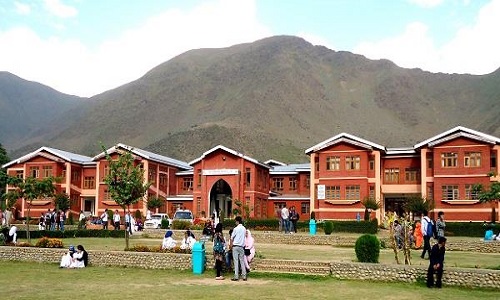Awantipora Jan, 21: In its journey of excelling in diverse areas of science and technology, Islamic University of Science & Technology (IUST), Awantipora has been made a part of the recently released global report on Taxonomy by the Secretariat of the Convention on Biological Diversity (CBD), Montreal, Canada which has been prepared jointly with the United Nations Environment Programme (UNEP), Government of Germany, Museum für Naturkunde Berlin, Global Taxonomy Initiative (GTI), and Japan Biodiversity Fund.
More than 200 experts and observers from renowned institutions from over 60 countries including IUST were part of this publication. Research Officer, Mantaqi Centre for Science & Society (IUST) Dr. Aijaz Ahmad Qureshi contributed to this global report titled as, “The Global Taxonomy Initiative in Support of the Post-2020 Global Biodiversity Framework, CBD Technical Series No. 96”. The publication underlines the scientific tools, capacity development activities and services in taxonomy available to parties with advice given by taxonomic experts and calls for action on recognizing the critical role of taxonomy to support the transformative change within the post-2020 global biodiversity framework.
The report among others key issues, also highlights that Taxonomy being the fundamental scientific discipline underpinning biodiversity discovery and understanding must be recognized and fully integrated into all components of the global biodiversity framework.
The Secretariat of the Convention is institutionally linked to UNEP and it primarily works for preparation and conduct of meetings of the Conferences of the Parties (COP) and other subsidiary bodies of the convention and coordinate with relevant international bodies. The principal focus of the CBD has been on conservation and sustainable use of biological diversity and the fair and equitable sharing of benefits arising from its utilisation.
The CBD was opened for signature at the United Nations Conference on Environment and Development (UNCED) in Rio de Janeiro in June 1992. It entered into force on 29 December 1993 and currently has 198 Parties.

